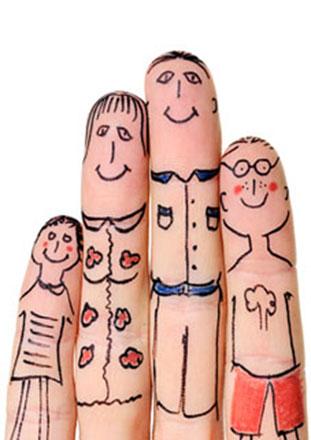You are here
Parents often do not know when teens have suicidal thoughts
By Reuters - Jan 15,2019 - Last updated at Jan 15,2019

Photo courtesy of psychalive.org
Three in four parents are unaware when their teens have recurrent thoughts about suicide, and a big part of the problem may be that adolescents often deny feeling this way, a US study suggests.
Researchers interviewed 5,137 adolescents, ages 11 to 17, along with one parent or stepparent. Most teens in the study did not report suicidal thoughts.
But when they did, half of their parents were unaware these teens had thoughts of killing themselves and 76 per cent of parents did not know when teens regularly thought about death, researchers report in Paediatrics.
“These findings highlight the importance of open communication between parents and adolescents and creating a safe and supportive family environment where adolescents feel comfortable disclosing their problems and concerns to parents and parents feel comfortable soliciting information from their teens having difficult conversations,” said lead study author Jason Jones of the Children’s Hospital of Philadelphia and the University of Pennsylvania Perelman School of Medicine.
“Teens need to know they can depend on their parents in times of need,” Jones said by e-mail. “Parents should also not hesitate to seek help if they have concerns.”
Suicide is the second leading cause of death among US youth ages 10 to 24, and suicide deaths rates among young people have been rising, researchers note in Paediatrics.
More than two-thirds of teens experiencing suicidal thoughts do not receive mental health services.
The current study recruited families from a large paediatric health care network, not from mental health clinics. The adolescents were 15 years old on average, and most of the adults who participated were their mothers.
Among other things, interviewers asked the youngsters and parents if the children had ever thought of killing themselves or if they thought a lot about death.
Overall, children and parents were more likely to share a common awareness of adolescents’ suicidal thoughts when children were older than when they were preteens.
For girls, however, parents were more likely to recognise thoughts of death at younger ages and less likely to be aware of suicidal thoughts at younger ages.
With boys, the opposite was true, and parents were less aware of suicidal thoughts for older teens.
White parents were more likely to detect suicidal thoughts in their teens than non-white parents in the study.
About one in ten parents in the study were fathers, and dads were more likely to miss teens’ suicidal thoughts than mothers.
The study was not a controlled experiment designed to prove whether or how parents’ recognition of teens’ suicidal thoughts, or teens’ awareness of their own feelings, might directly impact the chance of self-harm or death by suicide. It is also not clear if results from pediatrics health clinics in Philadelphia would be similar elsewhere in the country.
Even so, the results highlight the potential for adolescents’ mental health problems and suicidal thoughts to go undetected, said Dr Jacqueline Grupp-Phelan of the University of California, San Francisco, Benioff Children’s Hospital
“This is due to many reasons including the internal nature of suicidal thoughts, lack of systemic screening and the denying by teens that they are having these thoughts,” Grupp-Phelan, the author of an accompanying editorial, said by e-mail.
“The most important take-home message for parents is ask your teen how they are doing, and if you notice a change in behavior or energy level, get help from their primary care provider or mental health professional,” Grupp-Phelan advised.
Warning signs include sadness, loss of interest and withdrawal from activities, and social isolation, among others, Jones said. Parents can get more information on risk factors and warning signs for suicide from the American Foundation for Suicide Prevention
Related Articles
Adolescents who do not get enough sleep may be more likely to develop risk factors for heart disease like high blood pressure and excess bod
MIAMI — Adolescents who feel their parents rarely express interest in their emotional well-being are far more likely to consider suicide tha
Children who suffer adverse experiences like abuse and neglect may be less likely to have mental health problems in adulthood if they play t














